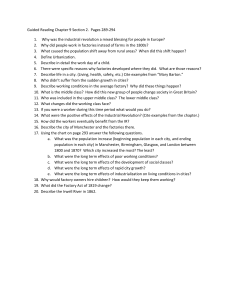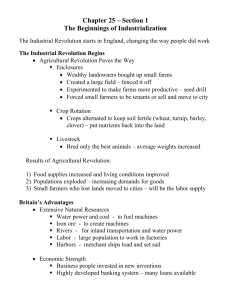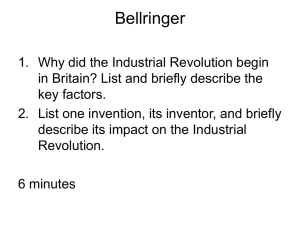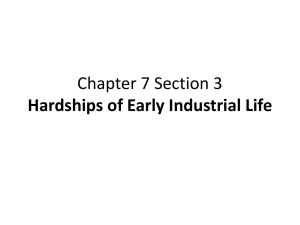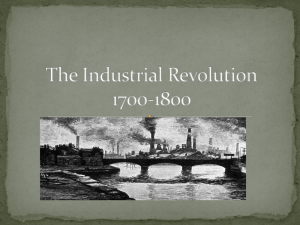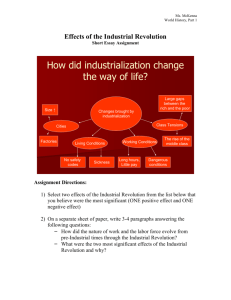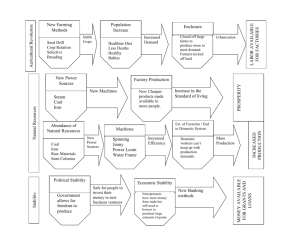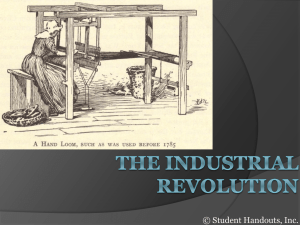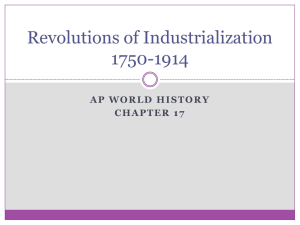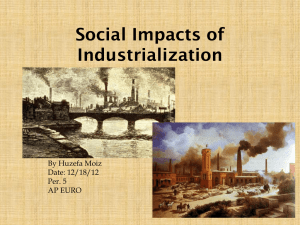World History 9 Notes – Chapter 25, section 2 “Industrialization
advertisement
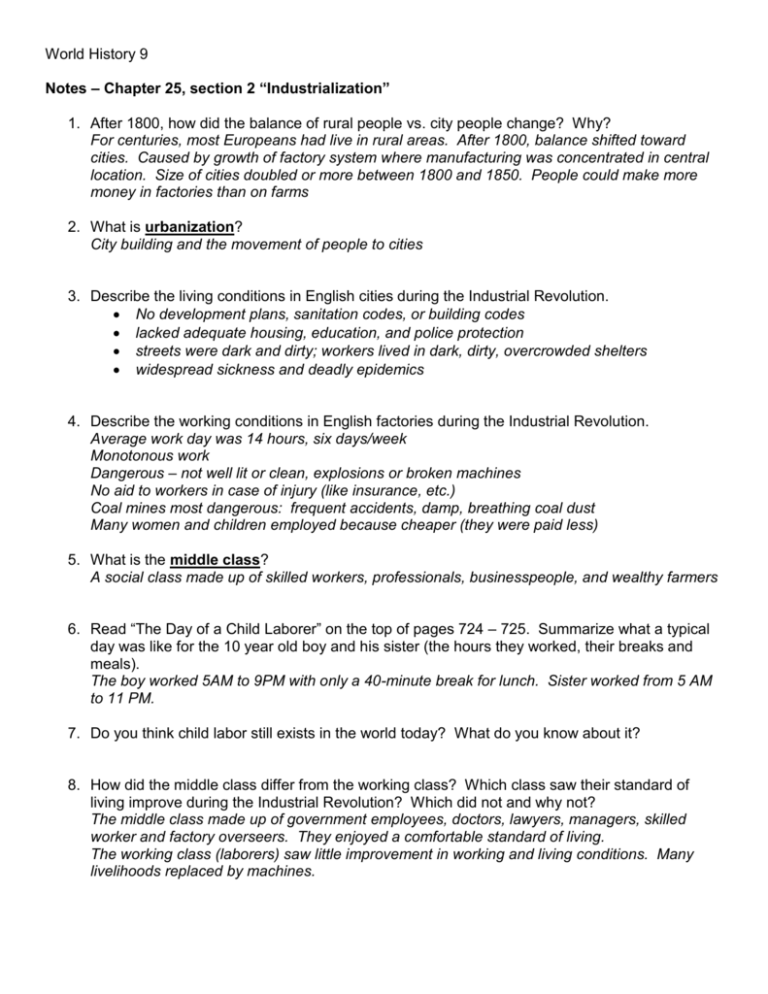
World History 9 Notes – Chapter 25, section 2 “Industrialization” 1. After 1800, how did the balance of rural people vs. city people change? Why? For centuries, most Europeans had live in rural areas. After 1800, balance shifted toward cities. Caused by growth of factory system where manufacturing was concentrated in central location. Size of cities doubled or more between 1800 and 1850. People could make more money in factories than on farms 2. What is urbanization? City building and the movement of people to cities 3. Describe the living conditions in English cities during the Industrial Revolution. No development plans, sanitation codes, or building codes lacked adequate housing, education, and police protection streets were dark and dirty; workers lived in dark, dirty, overcrowded shelters widespread sickness and deadly epidemics 4. Describe the working conditions in English factories during the Industrial Revolution. Average work day was 14 hours, six days/week Monotonous work Dangerous – not well lit or clean, explosions or broken machines No aid to workers in case of injury (like insurance, etc.) Coal mines most dangerous: frequent accidents, damp, breathing coal dust Many women and children employed because cheaper (they were paid less) 5. What is the middle class? A social class made up of skilled workers, professionals, businesspeople, and wealthy farmers 6. Read “The Day of a Child Laborer” on the top of pages 724 – 725. Summarize what a typical day was like for the 10 year old boy and his sister (the hours they worked, their breaks and meals). The boy worked 5AM to 9PM with only a 40-minute break for lunch. Sister worked from 5 AM to 11 PM. 7. Do you think child labor still exists in the world today? What do you know about it? 8. How did the middle class differ from the working class? Which class saw their standard of living improve during the Industrial Revolution? Which did not and why not? The middle class made up of government employees, doctors, lawyers, managers, skilled worker and factory overseers. They enjoyed a comfortable standard of living. The working class (laborers) saw little improvement in working and living conditions. Many livelihoods replaced by machines. 9. What were the positive effects of the Industrial Revolution? (You should have between 6 and 8 positive effects.) Created jobs Helped nations become wealthy Fostered technological progress and inventions Increased production of goods and raised standard of living Provided hope for improvement in people’s lives (you could become wealthy through skill and work) Healthier diets, better housing, and cheaper clothing Expanded educational opportunities (need for engineers, clerical and professional workers) Middle class prospered immediately; for laborers it took longer (higher pay, shorter hours, better working conditions) 10. What were the long-term effects of the Industrial Revolution? Consumer goods more affordable (due to mass production) Living and working conditions greatly improved since the 19th century Profits from industrialization increase tax revenues, so governments can improve urban areas 11. Read “The Mills of Manchester,” then answer the following questions: a. How did geography play a role in the growth of Manchester? Access to water power Available labor Outlet to sea b. What do you think the writer meant when he said, “From this filthy sewer, pure gold flows”? The city was disgusting and dirty, but a lot of money was made from the factories. c. Why do you think so many young children worked in the factories? Who benefitted from child labor? Cheaper; small hands needed for certain jobs; Factory owners benefitted because they got more labor and it was cheap. Families benefitted because everyone in the family brought home an income d. What were some environmental effects of the factories in Manchester? Pollution of natural environment Coal smoke blackened the air Textile dyes and other wastes poisoned the river 12. Think: The Industrial Revolution has been described as a mixed blessing, meaning both good and bad. Do you agree or disagree? Support your answers with information from the text and your notes.

